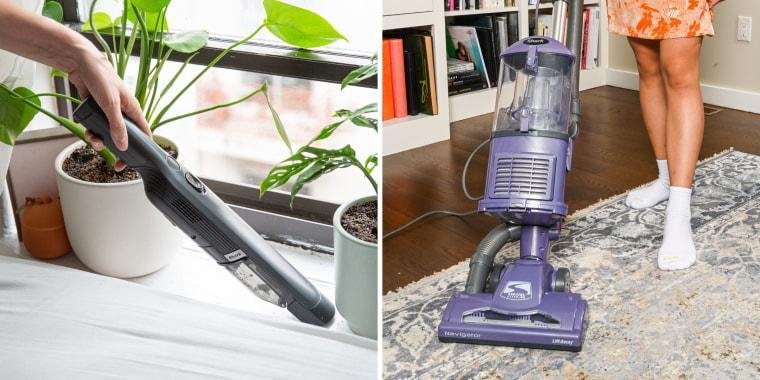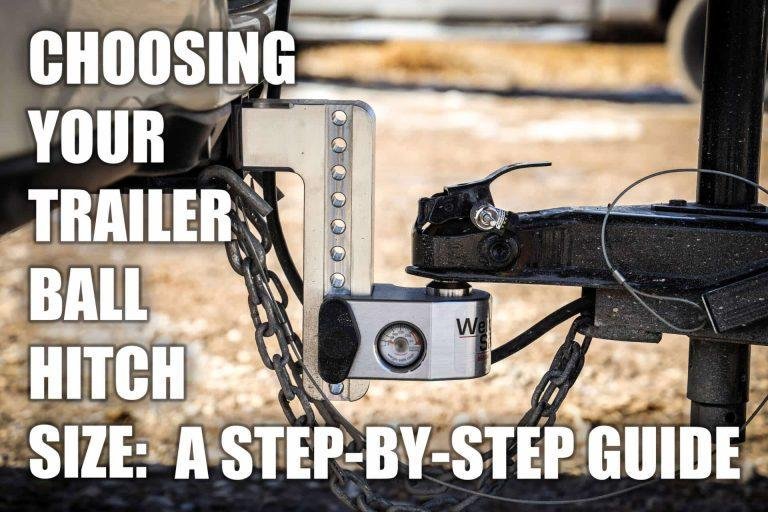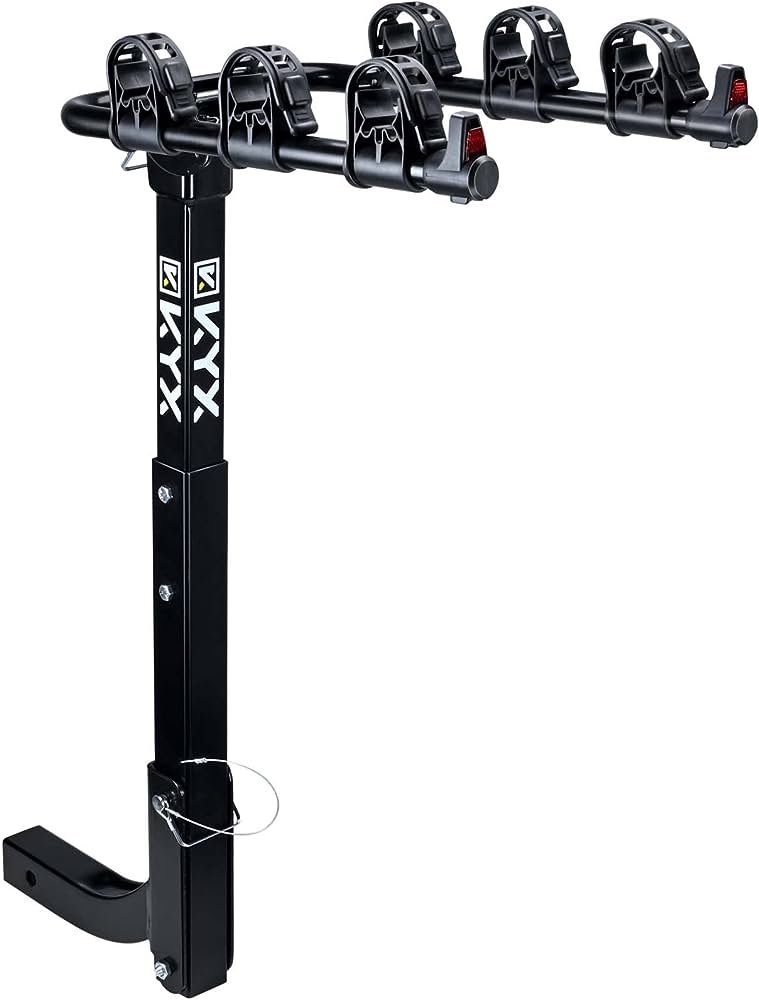Installing a hitch does not typically void the warranty on a vehicle. Despite this, it is wise to consult the manufacturer’s guidelines to ensure compliance and prevent any potential warranty issues.
A hitch is a useful addition that allows for towing and carrying cargo, and it is essential to maintain the warranty coverage for the rest of the vehicle components. By understanding the warranty terms and following proper installation procedures, one can enjoy the benefits of a hitch without compromising their vehicle’s warranty.
Additionally, seeking professional advice from an authorized dealer or mechanic can provide further assurance and prevent any warranty-related concerns. Ultimately, installing a hitch should not void the vehicle’s warranty if done correctly and in accordance with the manufacturer’s recommendations.

Credit: 4xpedition.com
Exploring How Installing A Hitch Can Affect Your Vehicle Warranty
Installing a hitch on your vehicle could potentially void your warranty. It is essential to consult your vehicle manufacturer or dealership to understand the specific terms and conditions regarding hitch installations and their impact on warranty coverage. Make sure to consider this before making any modifications to your vehicle.
Types Of Warranties Offered By Manufacturers
- Bumper-to-bumper warranty: This warranty covers almost all parts of your vehicle for a specific period. It typically lasts for three to five years and is usually transferable to a new owner.
- Powertrain warranty: This warranty covers the engine, transmission, and other critical components that make your vehicle move. It generally has a longer coverage period than the bumper-to-bumper warranty.
- Rust and corrosion warranty: This warranty protects your vehicle against rust damage that occurs under normal use.
- Emissions warranty: This warranty covers components related to the vehicle’s emission control system, ensuring compliance with environmental regulations.
- Accessories and extended warranties: These warranties cover additional features or options added to the vehicle, such as a hitch. However, it’s essential to review the terms to understand how modifications might impact coverage.
Understanding The Terms And Conditions Of Your Vehicle Warranty
- Read the fine print: Review the warranty booklet or contract provided by the manufacturer to understand the terms and conditions.
- Authorized modifications: Some warranties may allow specific modifications, while others may void coverage if unauthorized changes are made.
- Maintenance requirements: Manufacturers often require regular maintenance according to their specifications for the warranty to remain valid.
- Transferability: If you plan to sell your vehicle, it’s essential to determine if the warranty is transferable to the new owner.
Examining Common Concerns About Installing A Hitch And Warranty Voidance
- Hitch installation not mentioned: Manufacturer warranties typically don’t list specific modifications that void coverage, which can create uncertainty regarding hitch installation.
- Impact on safety features: Concerns focus on potential interference with safety systems such as parking sensors, rearview cameras, or autonomous emergency braking. However, many hitches are designed to work with these features, and professional installation minimizes any risks.
- Negligence claims: If improper installation or use of a hitch results in vehicle damage or accidents, it can be challenging to claim warranty coverage for related repairs.
- Dealer response: Warranty claims related to modifications may face resistance from dealerships, necessitating a thorough understanding of your rights and warranty coverage.
The Importance Of Knowing Your Warranty Coverage Before Modification
- Research and ask questions: Understand the type of warranty you have and any limitations or exclusions it may have regarding modifications.
- Seek professional advice: Consult with authorized dealerships or experienced installers to ensure compliance with warranty guidelines and proper installation.
- Document everything: Keep a record of the modifications, installation process, and any conversations with dealerships or manufacturers regarding warranty coverage.
- Consider extended warranties or add-ons: If you anticipate making modifications, exploring additional coverage options can provide peace of mind.
Installing a hitch on your vehicle can offer countless benefits, but it’s crucial to consider its potential impact on your warranty. Understanding your warranty coverage, knowing the terms and conditions, and being aware of the potential concerns surrounding hitch installation can help you make an informed decision.
By researching, seeking professional advice, and documenting the process, you can enjoy the benefits of a hitch without jeopardizing your warranty coverage. So, before you hit the road, ensure that you have a clear understanding of your warranty and any modifications that are permitted.
Debunking Myths: Installing A Hitch And Its Impact On Warranty
Installing a hitch does not automatically void your warranty, contrary to common perception. Vehicle manufacturers may, however, refuse to honor warranty claims for issues specifically related to the hitch or its installation. It’s essential to consult your vehicle’s warranty and consider professional installation to minimize any potential impact on warranty coverage.
When it comes to installing a hitch on your vehicle, you may have heard some rumors about it potentially voiding your warranty. But is there any truth to these claims? In this blog post, we will debunk myths and provide clear answers to your questions about hitch installation and its impact on warranty coverage.
Understanding The Relationship Between Modifications And Warranty Coverage:
- Making modifications to your vehicle, such as installing a hitch, does not automatically void your warranty.
- Warranty coverage can be affected if the modification directly causes damage to components covered by the warranty.
- It is important to understand the terms and conditions of your warranty to know how modifications may impact coverage.
Fact-Checking Common Misconceptions About Hitch Installation:
- Myth: Any modification will void your warranty entirely.
- Fact: Only modifications that contribute to the specific issue being claimed can potentially affect warranty coverage.
- Myth: Dealerships can refuse warranty claims if they detect any modifications.
- Fact: Warranty claims can only be denied if the modification caused the specific problem being claimed.
Case Studies And Real-Life Examples Of Warranty Claims With Hitches:
- Case study 1: A vehicle owner installed an aftermarket hitch, but the engine developed an unrelated issue. The warranty claim was approved as the hitch had no correlation with the engine problem.
- Case study 2: Another vehicle owner had a hitch installed, and the transmission failed. The warranty claim was denied as the hitch contributed to excessive weight, leading to transmission damage.
Addressing Concerns About Aftermarket Hitch Installation:
- Aftermarket hitch installation can be a valid concern for warranty coverage.
- To ensure compliance with warranty terms:
- Only use hitches compatible with your vehicle’s specifications.
- Have the hitch installed by a qualified professional.
- Keep records and receipts of the installation and any related services.
Installing a hitch on your vehicle does not automatically void your warranty. Understanding the relationship between modifications and warranty coverage is crucial. Fact-checking common misconceptions, considering real-life examples, and addressing concerns about aftermarket hitch installation helps clarify any doubts you might have.
Remember to always refer to your warranty terms and consult with professionals when making modifications to your vehicle.
Manufacturer Guidelines And Hitch Installation: What You Need To Know
Installing a hitch does not typically void the warranty on your vehicle, but it is important to follow the manufacturer’s guidelines for proper installation. Ensure you understand the guidelines and have the hitch installed by a professional to protect your warranty.
Installing a hitch on your vehicle can provide numerous benefits, from towing trailers to mounting bike racks. However, before you embark on this modification, it’s important to understand how it could impact your vehicle warranty. In this section, we will review the manufacturer guidelines on modifications and warranty coverage, emphasize the significance of professional hitch installation, and help you identify safe and approved hitch installation methods.
Reviewing Manufacturer Guidelines On Modifications And Warranty Coverage:
- Modifying your vehicle by installing a hitch can raise concerns about warranty coverage. It’s crucial to familiarize yourself with the manufacturer’s guidelines regarding modifications and their potential impact on warranty claims.
- Although the magnuson-moss warranty act generally protects consumers from having their warranties voided due to aftermarket modifications, specific conditions may apply.
- Some manufacturers may state that modifications could void warranty coverage, while others may allow certain modifications as long as they meet specific requirements.
- Review your vehicle’s owner manual or warranty documentation for any guidelines on modifications and warranty coverage related to hitch installation.
- It is important to note that manufacturer guidelines vary, so always refer to your specific vehicle’s documentation.
The Significance Of Professional Hitch Installation:
- Professional hitch installation ensures that the job is done correctly, minimizing the risk of damage to your vehicle and maximizing safety.
- Certified technicians possess the necessary expertise and experience to handle the installation process efficiently and effectively.
- Improper hitch installation can lead to issues such as structural damage, poor towing performance, and safety hazards.
- By relying on professionals, you can have peace of mind knowing that your hitch is installed according to industry standards and the manufacturer’s specifications.
Identifying Safe And Approved Hitch Installation Methods:
- When it comes to hitch installation, there are various methods available, including frame-mounted and bumper-mounted hitches.
- Frame-mounted hitches generally offer greater strength and towing capacity, making them suitable for heavy-duty towing.
- Bumper-mounted hitches, on the other hand, are typically designed for light towing or carrying accessories like bike racks.
- To ensure a safe installation, consult your vehicle’s owner manual or contact the manufacturer directly for recommendations on hitch installation methods.
- Adhering to the manufacturer’s instructions will help you identify the safest and most approved hitch installation method for your vehicle.
Remember, ensuring compliance with the vehicle manufacturer’s guidelines is of utmost importance. By following their recommendations on modifications and warranty coverage, opting for professional hitch installation, and using safe and approved methods, you can mitigate any potential warranty concerns and enjoy the benefits of having a hitch on your vehicle.
Warranty Voidance And Denied Claims: Uncovering The Truth
Installing a hitch does not necessarily void your warranty. However, it is important to understand the specific terms and conditions of your warranty and consult with the manufacturer or dealer to avoid denied claims. Trusting the truth over misconceptions can save you from unnecessary warranty issues.
Does Installing A Hitch Void Warranty?
Installing a hitch on your vehicle can bring numerous benefits, allowing you to tow trailers and carry additional cargo. However, you may wonder if this modification will compromise your vehicle’s warranty. In this section, we will delve into the truth behind warranty voidance and denied claims regarding hitch installation.
Exploring The Criteria For Warranty Voidance
When it comes to warranty voidance, it is important to understand the factors that manufacturers consider before denying claims related to hitch installation. Here are the key criteria:
- Modification: Warranty claims can be denied if the hitch installation involves extensive modification to the vehicle’s frame or structure.
- Improper installation: If the hitch is installed incorrectly or by an unauthorized person, it can lead to warranty voidance.
- Usage beyond its capacity: Hitches come with weight capacity limits. If you exceed these limits and damage occurs, warranty claims may be denied.
- Unrelated issues: Warranty denial may occur if manufacturers can prove that the issue you’re facing is not directly related to the hitch installation.
Investigating Warranty Claims Related To Hitch Installation
The warranty claims process can be complex when it comes to hitch installation. Here are some important points to consider:
- Record maintenance: Keeping detailed records of the hitch installation, including receipts and any maintenance or repair work, can strengthen your warranty claim.
- Evidence of proper installation: If you hire a professional installer, obtaining a detailed, itemized invoice can help support your warranty claim.
- Communication with manufacturer: Contacting the manufacturer before installing a hitch and discussing the specific impact on the warranty can provide clarity and address any concerns.
Scrutinizing Manufacturer Responses To Warranty Claims With Hitches
Manufacturers may have differing policies regarding warranty claims involving hitch installation. It is essential to understand how manufacturers respond to such claims:
- Clear warranty language: Manufacturers with clear warranty policies explicitly stating whether hitch installation voids the warranty provide transparency.
- Case-by-case evaluation: Some manufacturers evaluate warranty claims involving hitches on a case-by-case basis, taking into account factors such as the type of hitch, installation method, and other circumstances.
- Manufacturer-approved accessories: Certain manufacturers offer their own line of hitches and accessories that do not void the warranty, ensuring compatibility and peace of mind.
Understanding The Role Of Proper Maintenance And Documentation
To protect your warranty rights, it is crucial to maintain your vehicle properly and document all hitch-related activities:
- Regular maintenance: Adhering to the vehicle’s maintenance schedule ensures that you are fulfilling your obligations and taking care of any potential issues promptly.
- Documented repairs: Keeping records of any repairs or maintenance related to the hitch installation can provide evidence of proper upkeep.
- Owner’s manual: Following the guidelines provided in the owner’s manual for the hitch installation and its maintenance helps minimize the risk of warranty denial.
While installing a hitch may not necessarily void your vehicle’s warranty, it is important to consider the manufacturer’s criteria, maintain proper documentation, and follow instructions to ensure a smooth warranty claims process. By understanding the nuances of warranty voidance and denied claims related to hitch installation, you can protect your rights and navigate the warranty process effectively.
Protecting Your Warranty While Installing A Hitch: Expert Advice
Installing a hitch doesn’t automatically void your warranty. However, it’s crucial to follow expert advice to protect your warranty and ensure a successful installation.
Installing a hitch on your vehicle can add versatility and convenience to your driving experience. However, many car owners worry that modifying their vehicle in this way may void their warranty. Luckily, there are steps you can take to protect your warranty while installing a hitch, ensuring that you can enjoy the benefits without any concerns.
In this section, we will provide expert advice on how to maintain your warranty coverage when installing a hitch.
Seeking Guidance From Authorized Vehicle Dealerships And Mechanics
- Reach out to your vehicle’s authorized dealership or a certified mechanic before installing a hitch.
- Consult with professionals who are familiar with your specific make and model to ensure the installation process aligns with warranty guidelines.
- Authorized dealerships and mechanics possess in-depth knowledge and expertise that can help you navigate the warranty landscape effectively.
Documenting Modifications And Retaining Records
- Keep a detailed record of any modifications made to your vehicle, including the hitch installation.
- Retain all documentation related to the hitch, such as receipts, installation invoices, and any warranty information provided.
- These records provide solid evidence that modifications were performed correctly and can be helpful in case any warranty issues arise in the future.
The Importance Of Keeping Original Parts And Components
- When installing a hitch, it is crucial to preserve the original parts and components that were removed.
- Store and label these original parts carefully, as returning your vehicle to its original state may be necessary in certain warranty-related circumstances.
- Keeping the original parts ensures that you can easily revert any modifications if required, safeguarding your warranty coverage.
Steps To Take To Maintain Warranty Coverage When Installing A Hitch
- Review your vehicle’s warranty terms and conditions to understand any specific guidelines or limitations regarding modifications.
- Seek professional advice and guidance from authorized dealerships or certified mechanics experienced with your vehicle make and model.
- Choose a reputable hitch manufacturer and opt for professional installation to minimize any potential risks.
- Document the installation process thoroughly, including photographs, receipts, and any other relevant records.
- Keep the original parts and components in a safe place, ensuring accessibility if needed in the future.
By adhering to these steps, you can confidently install a hitch on your vehicle while protecting your warranty coverage. Remember to consult authorized dealerships or mechanics for personalized guidance, document all modifications, retain records, and preserve original parts. Following these recommendations will enable you to enjoy the benefits of a hitch without compromising your warranty.
Frequently Asked Questions On Does Installing A Hitch Void Warranty?
Will Towing A Trailer Void A Warranty?
Towing a trailer typically does not void a warranty.
Does Adding A Tow Hitch To The Model 3 Void Warranty?
No, adding a tow hitch to the model 3 does not void the warranty.
Is It Worth It To Install A Hitch?
Yes, it is worth installing a hitch. A hitch provides additional versatility and convenience to your vehicle. It allows you to tow trailers, campers, or other equipment, making it easier to transport heavy or bulky items. With a hitch, you can take road trips, go camping, or move belongings more efficiently.
Installing a hitch also increases the resale value of your vehicle, as it appeals to those who need towing capabilities. Additionally, hitches are available in various types, including receiver hitches and gooseneck hitches, allowing you to choose one that suits your needs.
Furthermore, the installation process is quick and straightforward, and hitches are durable and long-lasting. Overall, installing a hitch is a practical investment that offers numerous benefits and enhances the functionality of your vehicle.
Is Aftermarket Tow Hitch Better Than Oem?
Aftermarket tow hitch and oem tow hitch both have their own merits. Oem (original equipment manufacturer) tow hitches are specifically designed for the make and model of a vehicle, ensuring a precise fit. They meet the manufacturer’s standards and often come with a warranty, giving added peace of mind.
On the other hand, aftermarket tow hitches offer a wider range of options and may be more customizable to suit specific needs. They can provide better towing capacities and sometimes offer additional features not found in oem hitches. Ultimately, the choice between aftermarket and oem tow hitches depends on individual preferences and requirements.
While oem hitches guarantee compatibility and quality, aftermarket hitches offer more flexibility and potential enhancements. It is recommended to consider factors such as vehicle warranty, towing capacity, and personal preferences before making a decision.
Conclusion
Overall, installing a hitch does not automatically void a vehicle’s warranty. It’s crucial to verify the details of the warranty agreement and consult with the manufacturer or an authorized dealer for specific guidance. While certain modifications may indeed affect the warranty, installing a hitch typically falls within the permissible bounds.
Manufacturers understand the importance of towing capabilities and often offer additional towing packages or accessories to enhance vehicle functionality. However, it’s recommended to follow proper installation procedures and use compatible hitches to ensure optimal performance and safety. Regular maintenance and upkeep of the hitch will also contribute to preserving the warranty coverage.
Understanding the terms and conditions of the warranty, as well as seeking expert advice when considering modifications, will help vehicle owners make informed decisions and enjoy the benefits of towing without voiding their warranty.





